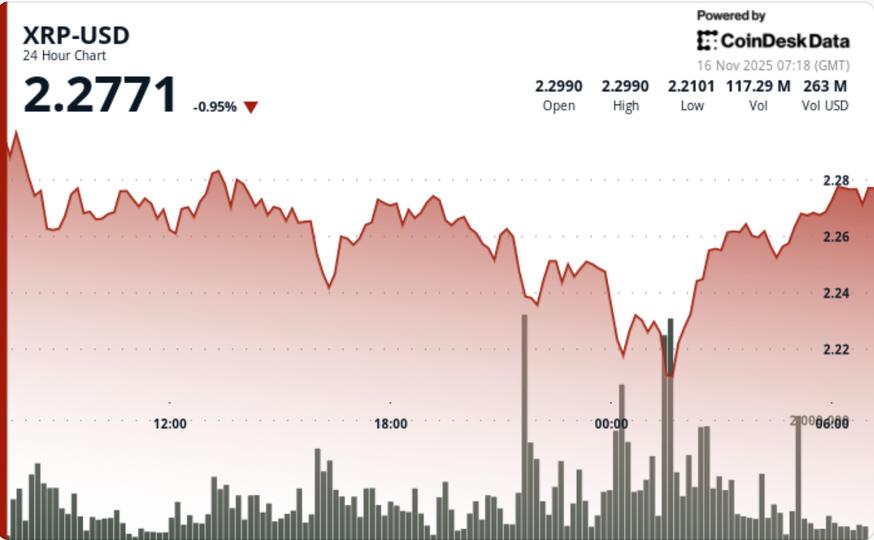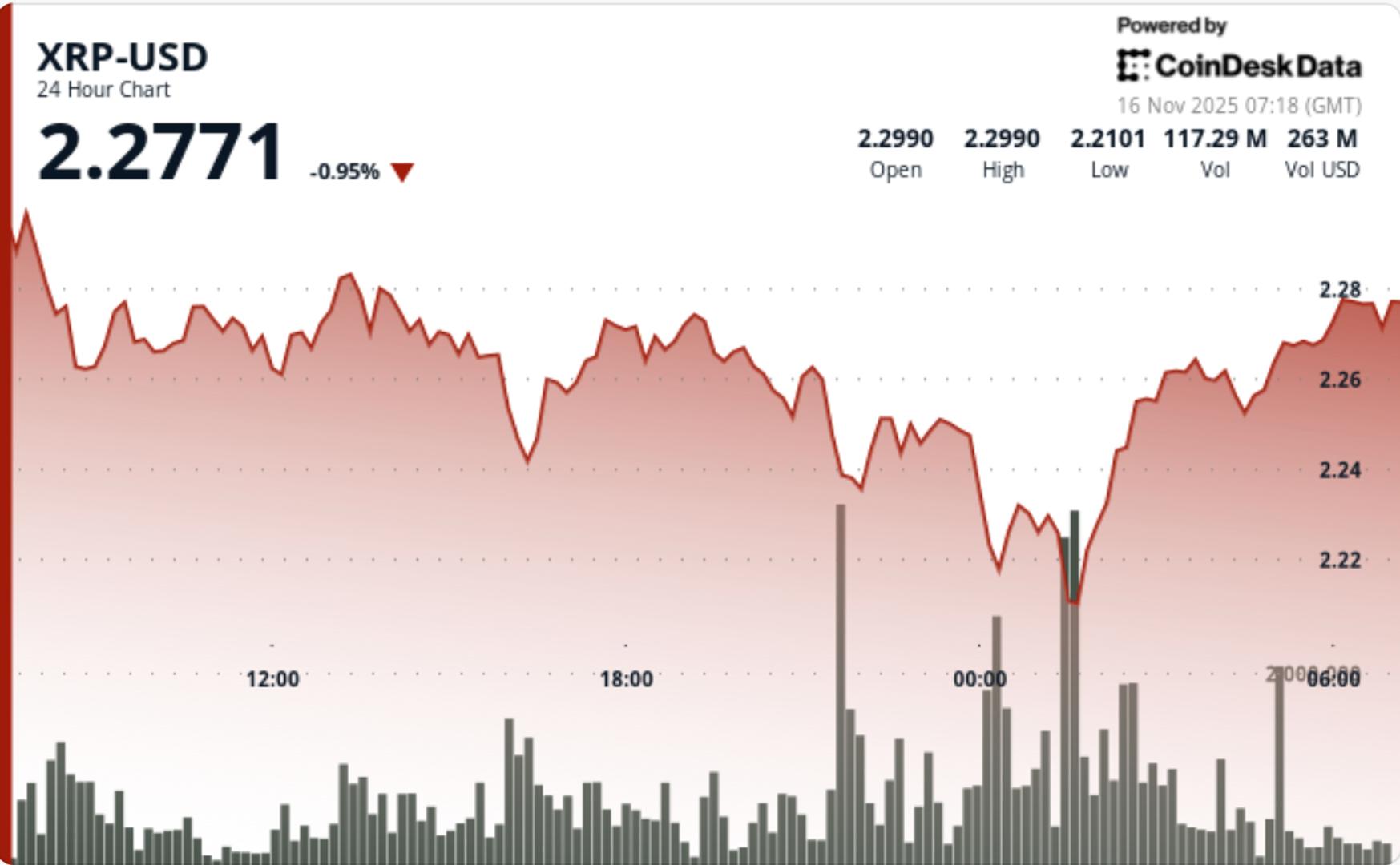CryptoCurrency
XRP Falls 4.3% Even After XRPC ETF Launch on Bitcoin Weakness, Finds Buyers Near $2.22


XRP faced intense selling pressure at key support levels before a dramatic, high-volume V-shaped reversal signaled potential exhaustion of downward momentum.
News Background
The decline unfolded against a backdrop of mixed institutional signals and heightened macro uncertainty. Crypto markets remain trapped in a medium-term downtrend, with sentiment pinned in the fear zone as volatility spikes across majors.
Canary Capital’s newly launched U.S. spot XRP ETF (XRPC) registered $58.6 million in first-day volume, far exceeding analyst expectations of $17 million. Yet the strong debut failed to stabilize XRP, as derivatives markets flashed stress signals. Roughly $28 million in XRP liquidations hit within 24 hours, with long positions accounting for nearly $25 million of the wipeout.
Market analysts warn that institutional flows remain conflicted—ETF inflows show interest, but broader risk-off pressure continues suppressing crypto liquidity and momentum.
Price Action Summary
XRP dropped 4.3% from $2.31 to $2.22 during the 24-hour session ending November 16 at 02:00 UTC. The decline carved a $0.10 range with a clear sequence of lower highs confirming bearish structure.
The most aggressive selling hit at 00:00 UTC, when 74M XRP traded—69% above the 24-hour average—breaking the $2.24 support. Price slid to $2.22, marking the session low. Three separate volume spikes above 57M during decline phases validated sustained distribution.
Despite the ETF catalyst, the selloff accelerated as price rejected $2.31 and failed to find support near prior consolidation zones. The pair settled into a tight $2.22–$2.23 consolidation after the breakdown.
Technical Analysis
Support/Resistance:
- Primary support: $2.22 (capitulation low)
- Immediate resistance: $2.23–$2.24 breakdown zone
- Critical Fibonacci support: $2.16 (0.382 retracement) — loss of this level risks swift drop toward $2.02–$1.88
Volume Profile:
- Breakdown volume: 74M XRP (+69%) confirming capitulation
- Two reversal-phase spikes (01:39, 01:46): 4.7M each, signaling selling exhaustion
- Recovery saw normalized but steady volume, consistent with bottom-fishing interest
Chart Structure:
- Overnight price hammered into support, printing a textbook V-shaped reversal
- Higher lows formed at $2.209 → $2.217 → $2.227, indicating momentum shift
- However, broader downtrend from $2.31 remains intact pending resistance reclaim
- Failure to break $2.23–$2.24 zone limits upside follow-through
Momentum Indicators:
- Intraday oversold conditions triggered reversal, but daily trend bias remains bearish
- 50D/200D structure slopes downward, adding overhead pressure
What Traders Should Know
XRP sits at a tactical pivot after a dramatic washout:
- Holding $2.22 is crucial — failure exposes direct move toward $2.16, then $2.02–$1.88
- A confirmed reclaim of $2.24, followed by $2.31, is needed to rebuild bullish structure
- ETF flows will influence volatility — follow early XRPC volume at U.S. market open
- The V-shaped rebound provides short-term relief, but major resistance overhead limits immediate upside
- A sustained break above $2.48 is required to shift trend bias back toward $2.60+ targets









